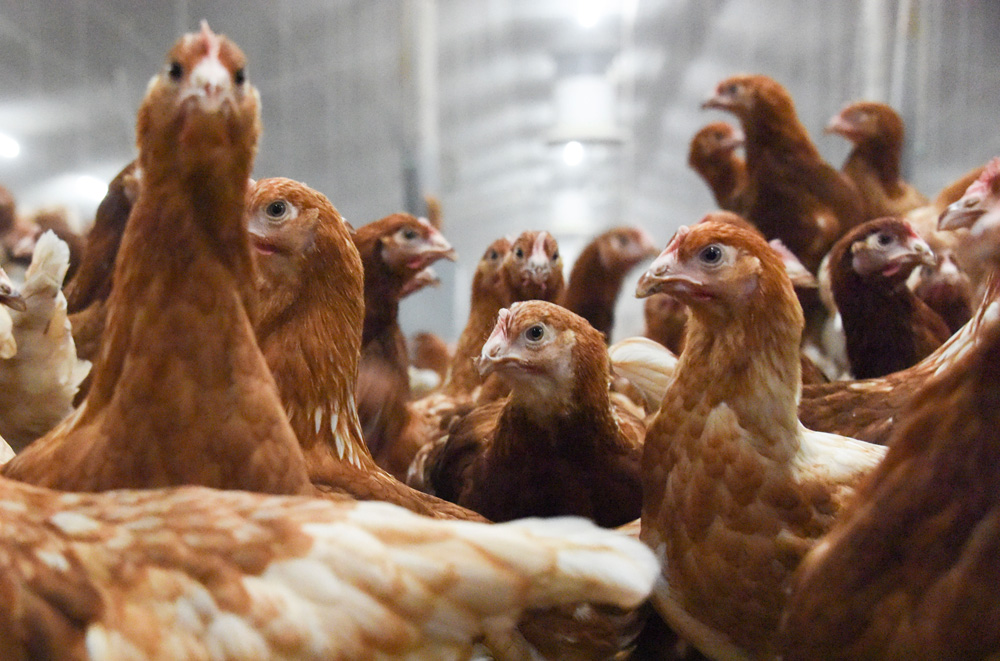Chick cost increase piles further pressure on pullet price
Published on : 20 Apr 2022
 UK layer breeding companies have written to customers announcing chick price increases of between five and eight pence which will be implemented between May and July this year. Unsurprisingly, the increase is being attributed to rising input costs, not least energy with hatchery processes requiring huge levels of electricity and gas.For those producers with pullet orders already placed for delivery in the autumn and onward, rearers will have no option but to add this extra cost to the price previously agreed with customers. Steve Carlyle of Country Fresh Pullets told the Ranger: “We’re having to view this as a chick surcharge and one we cannot absorb. Obviously for any new orders we can price it in but we have orders in the system where we weren’t able to take this into account.”In a letter from Lohmann GB to its customers, managing director Kenny Shaw said: “As you are all aware I wrote to you all in November last year regarding concerns over current world markets and the costs rising to unprecedented levels. With the very unfortunate circumstances in Ukraine which has sent shock waves through the World, I must write to you again and inform you due to costs which are out of Lohmann GB’s control, including feed and energy, Lohmann GB as from the 1st of May 2022 has no option but to increase chick price by £5.00/100.” Again referencing global forces outside of its control, Hy-Line UK wrote: “We appreciate this increase will not be welcome and the impact this will have on your business and therefore we will review this price increase in the future. We sincerely hope that the World markets become more stable very soon and no further increases will be necessary.”Hy-Line’s managing director Omead Serati told the Ranger that recent investment in the hatchery had done much to reduce costs but it couldn’t fully offset the unprecedented rise in the price of energy. “Solar power is reducing our electricity costs and ground source heat pumps have reduced our reliance on gas. Also, our latest delivery vehicles recycle waste engine heat as part of the chick temperature control system. We will continue with innovative investment as we strive to increase efficiency and keep costs down.” Mr Serati also cited on-farm costs which have pushed up the price of producing hatching eggs and labour availability as all impacting on the cost of producing chicks.
UK layer breeding companies have written to customers announcing chick price increases of between five and eight pence which will be implemented between May and July this year. Unsurprisingly, the increase is being attributed to rising input costs, not least energy with hatchery processes requiring huge levels of electricity and gas.For those producers with pullet orders already placed for delivery in the autumn and onward, rearers will have no option but to add this extra cost to the price previously agreed with customers. Steve Carlyle of Country Fresh Pullets told the Ranger: “We’re having to view this as a chick surcharge and one we cannot absorb. Obviously for any new orders we can price it in but we have orders in the system where we weren’t able to take this into account.”In a letter from Lohmann GB to its customers, managing director Kenny Shaw said: “As you are all aware I wrote to you all in November last year regarding concerns over current world markets and the costs rising to unprecedented levels. With the very unfortunate circumstances in Ukraine which has sent shock waves through the World, I must write to you again and inform you due to costs which are out of Lohmann GB’s control, including feed and energy, Lohmann GB as from the 1st of May 2022 has no option but to increase chick price by £5.00/100.” Again referencing global forces outside of its control, Hy-Line UK wrote: “We appreciate this increase will not be welcome and the impact this will have on your business and therefore we will review this price increase in the future. We sincerely hope that the World markets become more stable very soon and no further increases will be necessary.”Hy-Line’s managing director Omead Serati told the Ranger that recent investment in the hatchery had done much to reduce costs but it couldn’t fully offset the unprecedented rise in the price of energy. “Solar power is reducing our electricity costs and ground source heat pumps have reduced our reliance on gas. Also, our latest delivery vehicles recycle waste engine heat as part of the chick temperature control system. We will continue with innovative investment as we strive to increase efficiency and keep costs down.” Mr Serati also cited on-farm costs which have pushed up the price of producing hatching eggs and labour availability as all impacting on the cost of producing chicks.
